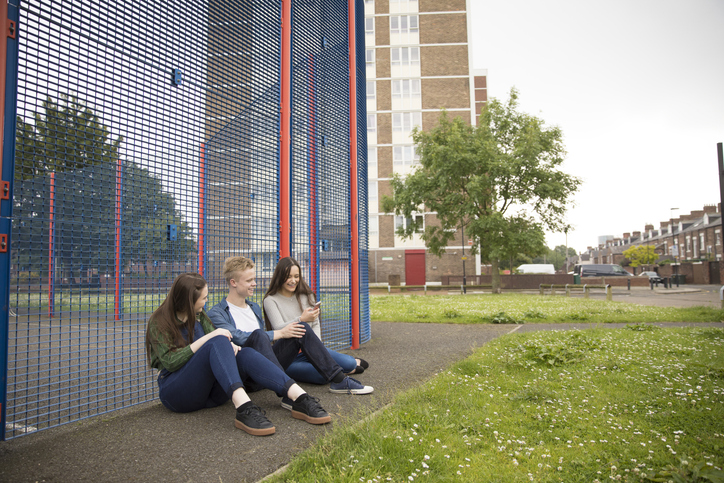Increasing access to parks and gardens may not be enough to help teenagers in urban areas get a healthy amount of sleep.
Research using data from the Millennium Cohort Study (MCS) finds that family income also plays an important role.
Among 14-year-olds who grew up in greener urban areas in the UK, those from less well-off families were less likely than their wealthier peers to get the recommended 8-10 hours sleep a night.
What the researchers looked at
Researchers from the IOE, UCL’s Faculty of Education and Society and the University of Glasgow, drew on data from MCS, which follows the lives of around 19,000 people born in the UK at the turn of the century.
They looked at information from a subsample of 1,300 adolescents who had reported on their sleep patterns and physical activity in a time-use diary on one weekday and one weekend day.
This data was compared with linked geographical information about the quantity of greenspace and air pollution in the participants’ local neighbourhoods, as well as a range of child and family characteristics, including household income.
The importance of greenspace
More advantaged teenagers in urban areas who grew up close to parks and gardens slept around the recommended 8-10 hours per night during the week, while their less affluent peers slept 45 minutes less, on average, each night.
Surprisingly, the research team found that teens from advantaged homes who were raised in urban areas with fewer greenspaces also slept the recommended hours each night. In contrast, their more disadvantaged peers tended to oversleep by 15 minutes, on average, each night.
The study’s authors suggested that for advantaged teens, the negative impacts of living in urban areas without easy access to parks and gardens may be compensated by having “additional resources and daily structures, for instance, suitable routines and schedules, which are known predictors of adolescent well-being.”
The study’s authors also found that all teenagers who lived in areas with higher levels of air pollution tended to oversleep during the week. Additionally, they discovered that young people usually slept over the recommended amount at weekends.
What do these findings suggest?
The researchers explained: “The present study suggests that merely increasing the amount of greenspace in residential neighbourhoods may not be sufficient to promote better outcomes for urban teenagers. Any policy implications of our work in relation to sleep health in adolescence should consider the complex interaction between neighbourhood greenspace and family income.”
“These findings may simply reflect the effects of transport poverty experienced by poorer families living in less dense urban areas who may have to wake up earlier to catch a bus or train to school. We can also interpret these findings, however, by considering the opportunities for physical activity, stress reduction and socialising afforded by exposure to greenspace: teenagers from low-income families in greener urban areas have relatively more access to these opportunities, and may choose to spend less time sleeping or resting in order to take part in them.”
Further information
‘The effect of urban greenspace on adolescent sleep patterns,’ by Dimitris I. Tsomokos, Dongying Ji, Marie A. E. Mueller, Efstathios Papachristou & Eirini Flouri is available on the Landscape Research website.





